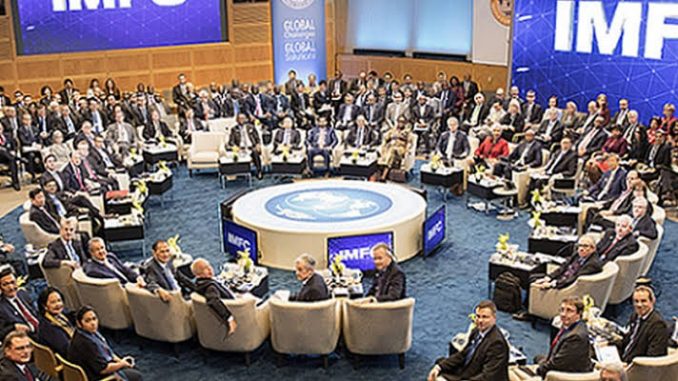
The International Monetary Funds (IMF) on Wednesday approved a $739 million emergency loan for Kenya and $491.5 million for Uganda, totalling $1.2305 billion, as the East African countries deal with the coronavirus pandemic.
Both face severe economic shocks amid efforts to contain the spread of COVID-19, the Washington-based crisis lender said in announcing the latest fast-disbursing aid as it rushes to help countries deal with the economic impact of the outbreak.
More than 100 IMF members have sought emergency financing, and the fund has warned that the world’s poorest countries are most at risk.
ALSO READ: Nigeria reduces ex-depot price of petrol from N113.28k to N108.00k per litre
AFP said the funding will help Kenya “provide much-needed resources for fiscal interventions to safeguard public health and support households and firms affected by the crisis,” IMF Deputy Managing Director Tao Zhang said in a statement.
The money for Uganda will aid the country’s “urgent balance of payments and budget support needs,” Zhang said.
The two countries will receive funds under the Rapid Credit Facility, which is aimed at the world’s poorest nations and has been doubled in size to quickly dispense aid.
The coronavirus pandemic has caused business disruptions worldwide, with flights canceled and countries implementing strict border policies to keep out infected travelers, and the IMF warned Kenya’s main economic sectors tourism, transportation and trade are imperiled.
“The impact of COVID-19 on the Kenyan economy will be severe. It will act through both global and domestic channels, and downside risks remain large,” the IMF said.
Uganda is similarly threatened, and the government there has stepped up health spending, widening its deficit, which the IMF said is appropriate given the importance of stopping the virus.
“The global COVID-19 pandemic is expected to severely hit the Ugandan economy through several channels, with detrimental effects on economic activity and social indicators. The external and fiscal accounts are expected to deteriorate, creating substantial urgent external and fiscal financing needs,” Zhang said.





